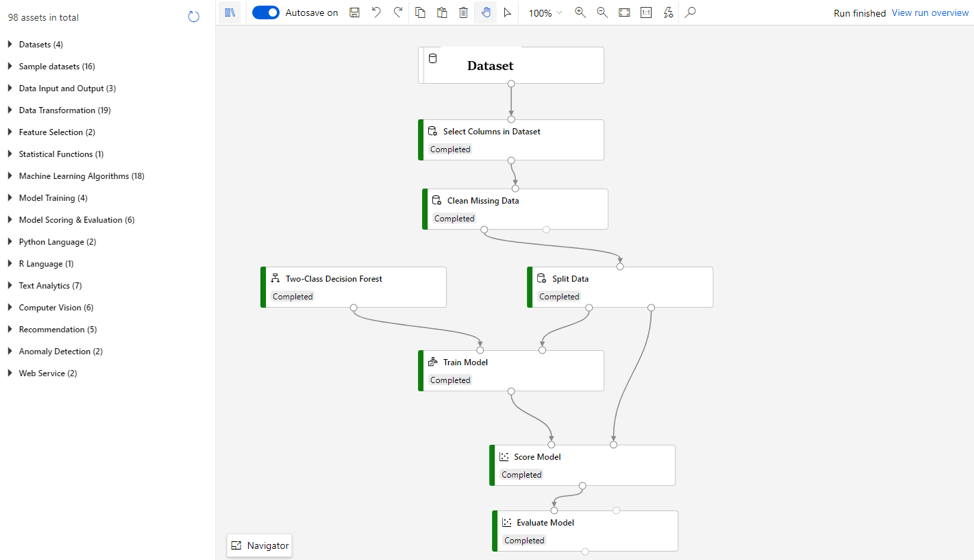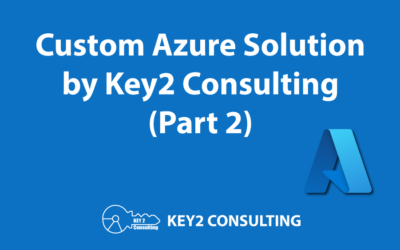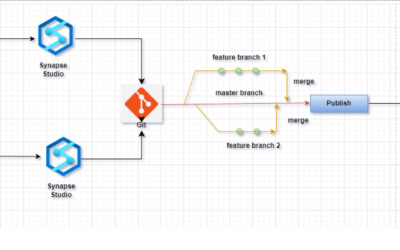Azure Machine Learning Service (Azure ML) is a cloud-based platform-as-a-service offering by Microsoft Azure. The Microsoft technology provides end-to-end machine learning capabilities in the cloud from model development to running experiments to model deployment as a RESTful API end point. The platform also supports coding in both Python and R through Jupyter notebooks, Jupyter Lab, and R Studio for different user preferences. Azure Machine Learning provides a simple point-specify-click GUI to develop code-free machine learning models and also provides an ideal environment for data scientists to collaborate seamlessly with several tools in a single ecosystem. 
By: Kash Sabba
What is Azure Machine Learning?
5 Key Features of Azure Machine Learning (Azure ML)
Azure ML supports several compute options for varying machine learning workloads. Users enjoy the ability to spin up a compute instance on demand for running Jupyter notebooks/R Studio/Jupyter Labs. For exploratory analysis, compute instances used in conjunction with notebooks offer a seamless coding experience to users.
Users have the ability to spin up a compute cluster for compute-intensive workloads. Several cluster options are supported such as Databricks, HDInsight, and Azure ML clusters. The compute clusters provide GPU enabled compute options for heavy machine learning workloads such as Natural Language Processing (NLP).
In addition, users have the ability to spin up an inference cluster, such as Azure Kubernetes Service (AKS) or Azure Container Instances for model production deployments.
Azure ML provides datastores to mount data from Azure Storage services such as a data lake store. Users can access datastores from the UI or in Python code using the workspace and datastore class. Once data is mounted, users have the flexibility to read data from data lake stores into Azure ML notebooks through the datastore.
Azure ML’s notebooks feature supports Jupyter notebooks, Jupyter Labs, and R Studio. Users have the flexibility to open up an existing Jupyter notebook kernel or create a custom kernel depending on the machine learning use case. The notebooks support conda virtual environments to create team specific development environments.
Notebooks are also integrated with GitHub. All users with access to an Azure ML instance can collaborate within a notebook(s) to develop/train/test/deploy models.
The Azure ML Designer feature lets users specify and create machine learning models through an interactive GUI. Designer supports several prebuilt modules for users to choose from during model development. For instance, a user can link a dataset with several prebuilt modules such as “select columns”, “clean missing data”, “split data”, “two-class decision forest”, “train model”, “score model”, and “evaluate model” as shown in the figure below.
The user can further deploy the modules as a pipeline using a compute cluster. The model results can also be visualized via a dashboard that is created when the “evaluate model” module gets executed in the pipeline.

The Automated ML feature lets users run automated model experiments in order to fine tune and train an existing model to reach an optimum target metric specified by the users. For instance, within a classification model, a user can specify to run several automated experiments to increase the model “accuracy” metric. Each experiment will build on the previous experiment to provide the model with the highest accuracy. All experiment results will be logged for users to evaluate.
Pricing
The cost to use Azure ML varies depending on the machine learning workload compute resources. For instance, compute instances are cheaper on average compared to compute clusters. The size of compute also gets factored into the cost. More compute nodes with higher RAM costs more on average.
Click here for the Azure cost calculator.
In Summary
Azure ML is a versatile cloud service for machine learning workloads. It provides flexibility in terms of model development and deployment using notebooks leveraging Python/R SDKs for advanced users and visual designer with automated ML flow for code free deployment. It’s a great tool for data scientists and ML engineers who want to collaborate with model development, training, testing, conducting experiments, and deploying the best machine learning model as a RESTful API end point.
Questions?
Thanks for reading. We hope you found this blog post to be useful. Do let us know if you have any questions or topic ideas related to BI, analytics, the cloud, machine learning, SQL Server, Star Wars, or anything else of the like that you’d like us to write about. Simply leave us a comment below, and we’ll see what we can do!
Keep Your Business Intelligence Knowledge Sharp by Subscribing to our Email List
Get fresh Key2 content around Business Intelligence, Data Warehousing, Analytics, and more delivered right to your inbox!



